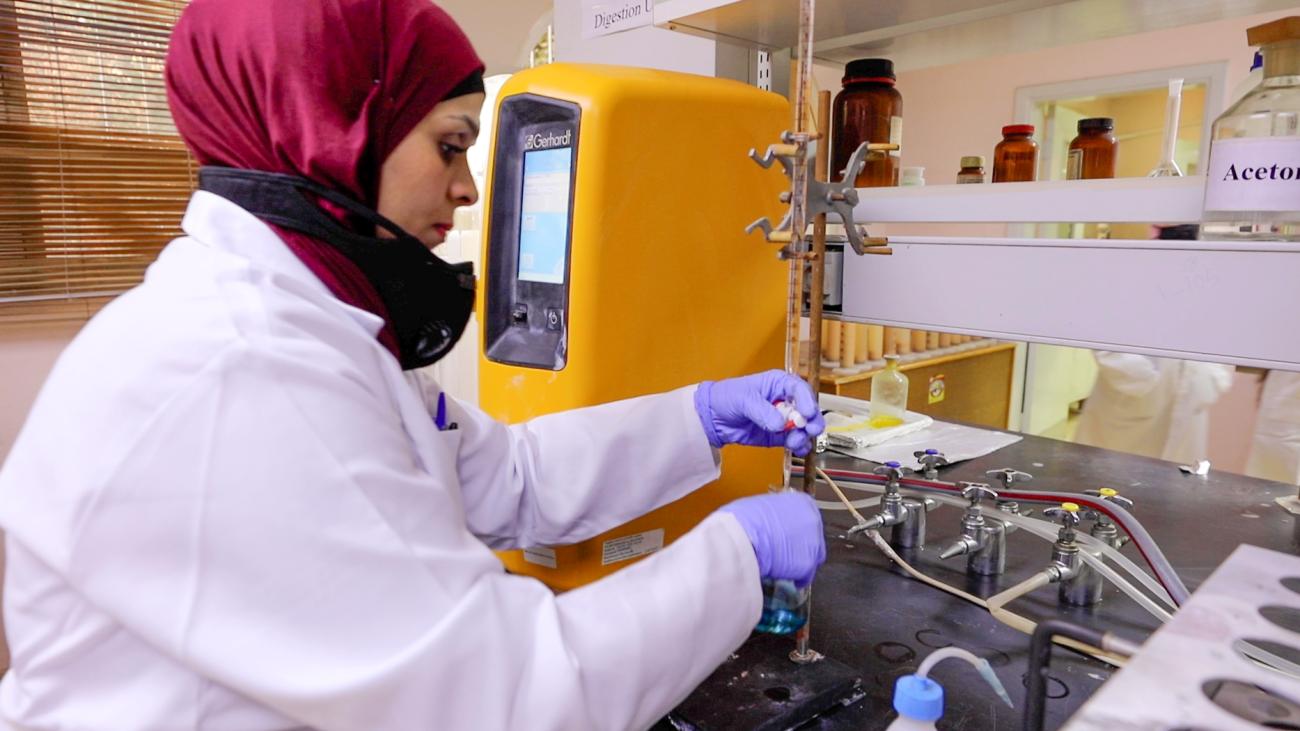WFP's innovation activity scales businesses and entrepreneurs in food, water and agriculture

The activity collaborates with entrepreneurs who develop impact-driven food, water, livelihood, nutrition, climate, and agricultural technology innovations.
Since 2021, the innovation activity has developed four multi-stage support programmes, engaged with 150+ entrepreneurs, provided USD 1,550,000 in direct funding support and contracted services to startups, and integrated startup solutions into two WFP programmes at scale.
Decapolis - WFP launched a 6-month pilot project with Decapolis in November 2020, targeting 100 Jordanian smallholder farmers (SHFs), to validate that using Decapolis results in higher quality and quantity yields. The pilot resulted in a 28% increase in revenues for smallholder farmers, 98% less pesticide residue, and an 84% improvement in product quality and quantity.
WFP scaled up its collaboration with Decapolis in 2022 and implemented a similar project with 600 SHFs under the livelihoods and resilience activity to validate that Decapolis’s impact grows exponentially at scale. The initial results indicate an average of 86% increase in SHF revenue (200% on some products) and 99.5% pesticide residue-free products.
Decapolis has also been integrated into the National School Feeding programme in the last quarter of 2022 to source and trace local produce for 95,000 students during the 2022–2023 scholastic year with plans to reach 700,000 students across Jordan by 2027.
Under the different engagements between Decapolis and WFP, a total of 730 farmers have been supported, 960 tons of locally sourced fresh fruits and vegetables were procured, traced, and provided to 95,000 students under the school feeding activity’s pilot in 2022, ensuring vulnerable children eat safe, fresh home-grown product in a country with high pesticide residue, and 368 job opportunities were directly related to Decapolis’s operations, such as harvesting and sorting, including 95 women, 30 of whom are Syrian refugees.
ZINC Climate Hackathon – In collaboration with Zain Telecom, UNDP, and the Ministry of Environment, WFP supported the climate hackathon by providing mentorship to 41 teams who are developing innovative startups at different stages of growth, all focused on environmental problems. WFP participated on the judging panel to assess and select the 3 top performers who will be further supported by Zain Telecom.
iPark - In partnership with iPark, Jordan’s first business incubator managed by the Royal Scientific Society, WFP launched a capacity-strengthening acceleration programme in September 2022 for 30 early-stage startups working in food security innovation. At the end of the programme, 11 startups presented their ideas to a panel of experts, and 3 of the most promising startups (including iPlant) received seed grant funding of USD 10,000 each from WFP and will be further incubated in iPark to continue receiving support and allow for proper progress monitoring and reporting.
Senara - Senara was identified under the Green Accelerator Middle East programme, an early-stage entrepreneurship support initiative where WFP partnered with Cewas, a Swiss NGO operating in the Middle East, with a focus on strengthening entrepreneurial solutions to achieve the SDGs. WFP Jordan is supporting 3 early-stage startups (including Senara) from that programme with USD 10,000 each to launch pilot projects to validate their impact at scale with the aim of scaling up into WFP operations.
Senara has been utilizing WFP funds to increase their capacity in packaging and marketing the goods produced by supported households in Gaza camp/Jerash, positively impacting the beneficiaries’ livelihoods, and to upgrade their existing farm, which is used for training, showcasing different systems, and for selling their own grown harvest to retailers as an additional revenue stream, ensuring the sustainability of the startup. These upgrades included new plastic houses, flooring, security cameras, and other components to increase productivity and quality. Senara currently has 10 rooftop units in vulnerable communities, has trained upwards of 60 people, and directly employs 35 people from the Gaza refugee camp in Jerash.


